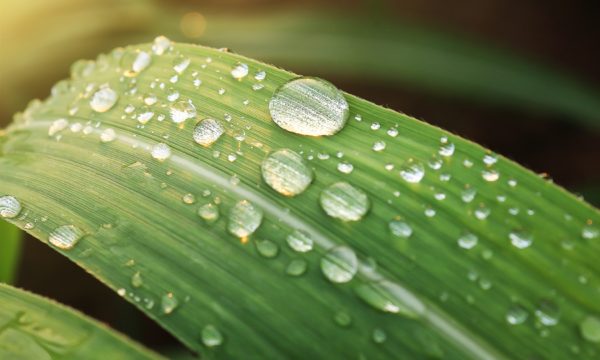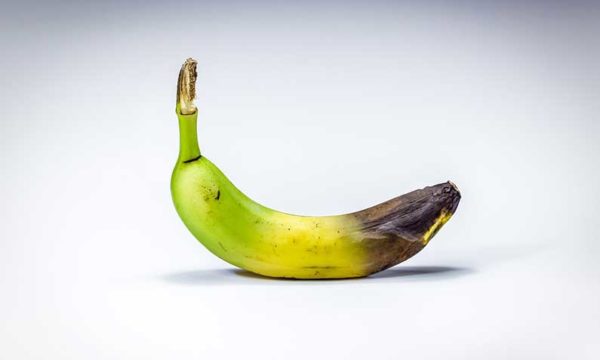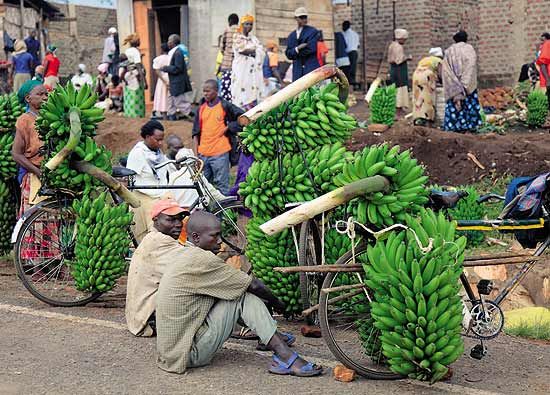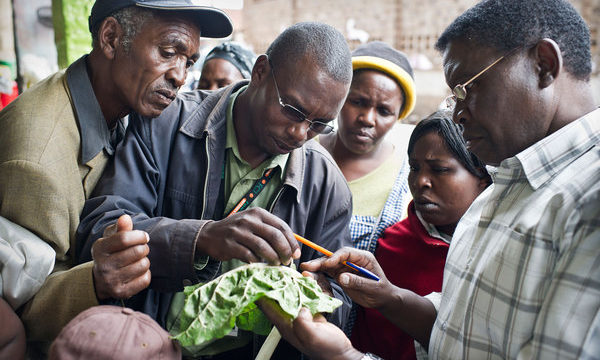Scientists working at CIRAD, a French research centre, have sequenced the banana genome for the first time. The researchers have been able to trace the evolution of the banana, as well as study the current genetic make-up of the species. This will help future research into why this crop is so susceptible to pests and disease. Improved varieties could then be developed, producing higher yields for farmers.
The banana species that Angélique D’Hont and her team were working on is Musa acuminate, which is a component in every banana variety we eat. The 520 million base genome, a little over one sixth the size of the human genome, took two years to sequence and is the first species in its botanical class (monocotyledons) to have its entire genome sequenced.
This work has mapped the banana’s 36 000 genes onto its 11 chromosomes to produce a full picture of the banana genome, which has been published and is freely available online.
Bananas provide essential nutrition to more than 400 million people in the southern hemisphere but are at risk due to their vulnerability to pests and diseases. Plantations often produce large quantities of single species with low genetic diversity, which means if one plant gets the disease, it’s likely to spread to the entire crop. This results in devastating impacts on yields.
The research, which was published in the journal Nature earlier this year, will allow the development of protection for existing cultivars, such as the Cavendish banana, the most commonly grown banana in Europe and the Americas. The Cavendish is currently affected by two devastating fungal epidemics, Panama disease and Black Sigatoka, which are reducing banana crop yields.
It is also hoped the research will enable the development of new, improved varieties with reduced disease susceptibility, improved drought resistance and increased nutritional qualities. The knowledge gained about the processes such as fruit ripening, may also help to produce a better fruit quality for the commercial markets.
This research, and the subsequent future developments, will be vitally important for the continuation of global banana production, which is increasingly threatened by pests and diseases.
To read more about this story, click here.
3 Comments
Leave a Reply
Related News & Blogs
Plastic mulch pollution in crop soil may threaten food security
Plastic debris could harm crop health in long term A plant emerging through plastic mulching. Photo: Wikimedia Commons Plastic mulching involves the use of thin plastic sheeting to conserve moisture and boost temperatures in soil. Commonly used in arid…
25 August 2020






[…] […]
Reblogged this on nyalugwe.
[…] Banana Genome Revealed to Aid Crop Yield Improvement by Claire Curry […]